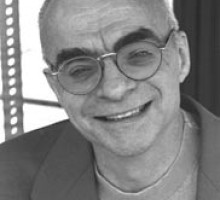
Reviews
A 'must' for any collection catering to librarians or any studying children's literature, especially at the college level.
Without question essential reading for professionals of all stripes engaged in the study of children's literature.
Drawing on his deep understanding of literary scholarship, postmodern theory, and children's literature for this learned work, Nodelman builds extensive arguments informed by philosophy, psychology, and culture studies as well as literary criticism. Highly recommended.
The capstone of a long and distinguished career, by an author who relishes the complexity and ambiguity he finds inherent in books intended for children.
The Hidden Adult is ground breaking; it will inform the study of children's literature for a long time to come.
This is a massively important book. Go buy it.
It is without question essential reading for professionals of all stripes engaged in the study of children's literature.
Orbiting around children and their books are hundreds of academic books and courses, puzzling out what children’s literature is, and what it does, and how it works. A lot has been thought and written about this (some good, some bad) – and Perry Nodelman’s brilliantly comprehensive and accessible analysis pulls it all together. No need to keep re-inventing the wheel of defining children, children’s books, response, literature, value, or why and how we talk about these books... it’s all here. This book shows the kind of knowledge that I only wish I had – and it’s a model of readability and generosity of spirit. Anyone who wants to know what has been thought about children and books – from the absolutely essential to the rather strange – could not find a better place to start.
Perry Nodelman is a leading scholar of children’s literature and The Hidden Adult is arguably his magnum opus.
Book Details
Acknowledgments
1. Six Texts
Different Texts, Same Genre
Language: The Text and Its Shadows
Focalization: Who Sees and What They Know
Desire Confronts Knowledge
Home and Away: Essential Doubleness
Variation
S
Acknowledgments
1. Six Texts
Different Texts, Same Genre
Language: The Text and Its Shadows
Focalization: Who Sees and What They Know
Desire Confronts Knowledge
Home and Away: Essential Doubleness
Variation
Summary
2. Exploring Assumptions
Reading as an Adult
Making Choices: Exploring Representativeness
Assumptions about Genre
Genre and Field
Genre and Genres
3. Children's Literature as a Genre
Defining Children's Literature
No Genre
Different but Not Distinct
Literature and Children
For the Good of Children
Literature for Boys and Literature for Girls
Middle-Class Subjectivity
Doubleness
Specific Markers
About Children
The Eyes of Children
Simplicity and Sublimation
The Hidden Adult
Narrator and Narratee
Showing, Not Telling
Happy Endings
Achieving Utopia
Binaries
Repetition
Variation
A Comprehensive Statement?
The Genre in the Field
Sameness and Difference
The Sameness of Children's Literature
Different Children's Literatures: The Effects of Personality and History
Different Children's Literatures: The Effects of Nationality
4. The Genre in the Field
Distinctive Texts in the Genre
Conclusion: Children's Literature as Nonadult?
Notes
Bibliography
Index






